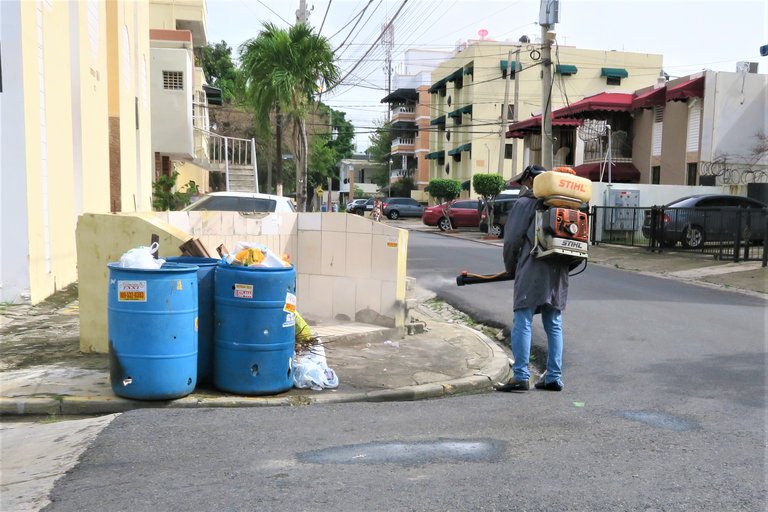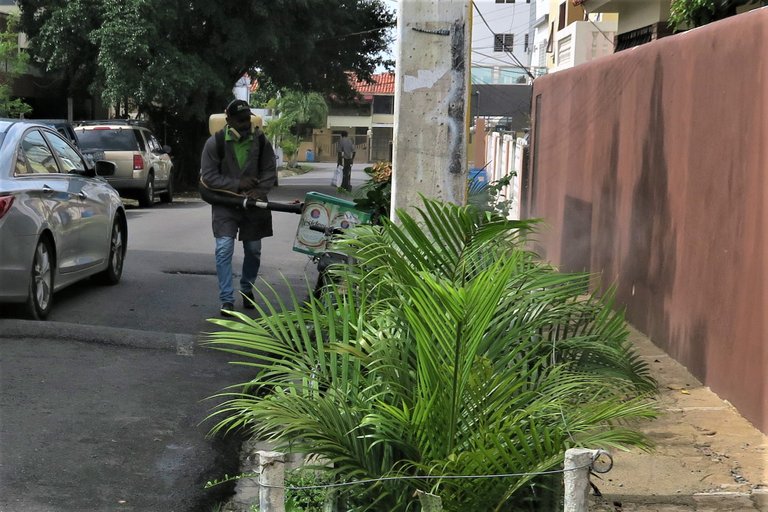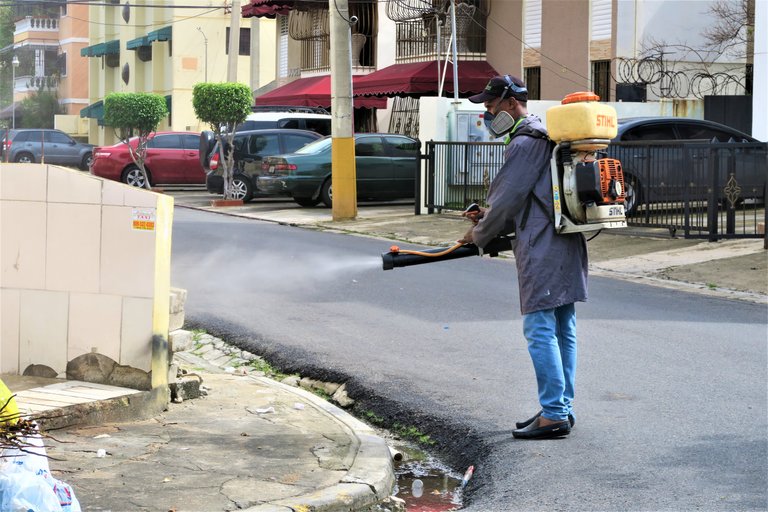So this article is a little less about giving advice and a little more about the bewildering scenario I witnessed when I was located in Santa Domingo, Dominican Republic.
One thing I noticed about being in a city (not too differently to where I am in Bangkok now) after coming from the smothering silence of being alone on a farm, was the sheer interruption of pollution around you. Whether it's the bellowing street vendors, the neighbourhood dogs, the scream of overhead helicopters, or raucous racing cars, there's always some kind of noise piercing your peace of mind. I wouldn't go as far as to call it an attack on your senses, but the sights, sounds, and smells of large cities like this certainly provide a jungle of visceral intrusions. For urban permies, this is your world, and I bow to you in the patience of it all, especially that the lack of control you have over your own life in a place where being so crowded with others who do not share your vision, means that you are subjected to enduring the decisions that they make.
One of these such decisions barged into my life while I was peacefully attempting to read Donella H Meadows book 'Thinking in Systems: A Primer' (excellent thought tool by the way). Ironically in the book, she was talking about looking for leverage points in systems where you wouldn't necessarily realise they were, to help relieve problems at the source, rather than just patching up symptoms and waiting for the pipe to burst again. While enjoying her innovation, I heard the mechanical roar of machinery and then saw a dude blasting fertilizer on bin bags.
I had noticed that there were many mosquitoes in this city. Flies are also a problem. But so are stray dogs. While the flies and the dogs might not seem connected, of course they are, it's just where you're looking for the answers. Apparently there was a ZIKA scare here a little back so the people were avidly trying to control the mosquito population to help curb the chance of a recurrence of this issue. There's no problem with this; the problem comes when these control measures are futile because they're not properly assessed.
Take this, while on a job in Arizona, there were a lot of mosquitoes. So I asked myself, why? There's many reasons why you find mosquitoes within your vicinity: an abundance of their food, insect attracting plants, and places they can breed, are but a few. I noticed on the site that when it rained, there was a great deal of standing water and the cycle of mosquitoes would thicken for the following week or so as the water slowly drained away or evaporated. In this scenario, I designed a rainwater system which would reduce the amount of standing water, which would reduce the amount that mosquitoes could breed.

This is not what is happening in the city. When you look at the collection of mosquitoes, flies, and street dogs, you'll find they congregate around certain weak points; the garbage sitting on the street. One of the things I noticed, sadly, about the Dominican Republic was the high level of dumping. This leads to areas where garbage is piled or strewn all around. While I have seen billboards denouncing this action, this still happens which creates those weak points where those mosquitoes, flies, and dogs are gaining their strength. The likelihood is that the disparity in wealth means that poorer people cannot afford the private services for garbage collection, a service not provided by the government. This leaves them few other options.
But what's most baffling here is how the government are spending money on dealing with the issue. Rather than devising a garbage collection system that's universal to its people (at least in the city), it sends round spirited young fellows to blast any pile or rubbish or rubble with pesticide. Adorned in a huge atomising body suit, these lads walk up and down the streets and spray everything in site with pesticide. Are the residents warned of this? Do they have a say in this? No they don't; it just happens.
Obviously, my view on pesticides is far from favourable. I see their toxicity as something I'd rather avoid clogging up my lungs with and if I had children, I would definitely not want them to be subjected. Equally, to unwitting dog owners strolling the streets for their daily walk, it puts their animals at danger from being poisoned by licking or eating this garbage. Whether you agree to the damage that pesticides do to our world or not, it seems unfathomable to me that residents would not be warned about this, at least so they could be out of town for a day while the gasses choke the sky.

It also seems incredulous to me that this is the solution that they've decided to invest in. No doubt it's probably cheaper than a garbage system that is affordable to all people, however this is a waste of money. It doesn't solve the problem at all. Instead it leads to the government needing to frequently shell out money to have garbage fumigated, that continues to pile on the streets and grow pests anyway. Moreover, fumigation kills everything; including the things that eat mosquitoes! The leverage point that they're tackling isn't a leverage point at all so the system is still going to kickback in the same way and nothing will change. It's like increasing pressure through water pipes and patching up the leaks, when you need to either turn down the pressure or widen the pipes (a Donella H Meadows analogy).

And this is the issue here that has led to many of our world's quick-fixes. Rather than addressing the issues of overpopulation or a lack of quality soil or poverty, we try and fix it by pushing through a plaster to patch up the holes by taking more, consuming more, killing more. Systems work most effectively when they're in balance, so when something becomes imbalanced, like the prevalence of a pest, we need to look at what's causing that imbalance and remedy that. Not blow toxins in the faces of unwitting urbanites. They've already got enough problems with the car fumes to contend with.